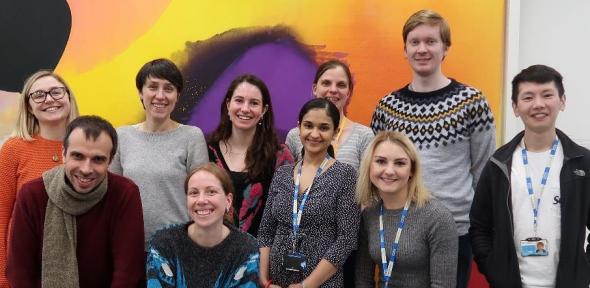
Flexible working in the research field: Elisa Laurenti, Principal Investigator, Wellcome Royal Society Sir Henry Dale Fellow, Department of Haematology
Fundamentally I believe that all researchers work flexibly to some extent…science can’t be constrained by 9-5 working hours.
I am a group leader working with a team of eight in the Department of Haematology. Fundamentally I believe that all researchers work flexibly to some extent; research is demanding and you are tied to the needs of your experiment - science can’t be constrained by 9-5 working hours. On the flip side, you have more freedom and are not tied to the traditional working hours pattern. You are fundamentally judged on productivity and not the number of hours worked and have to organise your own time, building ways of working according to what the research needs.
Pre-Covid-19, the regular working environment in my laboratory was already relatively flexible. All staff/students were normally requested to be in the laboratory for the number of hours specified on their contracts, including the core hours of 10-4, starting earlier or finishing later according to how they felt most productive. It’s important to take account of people’s personal working styles, I’m a morning person so am happy to start work much earlier in the morning and finish earlier, others might be more productive working later into the evening.
In research your achievement and success is based on your output – you have to organise your own time and build ways of working according to what the research needs. As a manager I have chosen to give my team the space to develop this skill, especially when people are at an early stage of their career in research.
University culture
I believe that staff shy away from flexible working because of a culture issue; there is a financial and emotional barrier to asking for unpaid leave or formal flexible working arrangements in research. People can be reluctant to ask for flexible working solutions because they feel it is their fault they haven’t found suitable arrangements, but we are all responsible for trying to find a way that works for everyone that allows the person the flexibility they need whilst avoiding the knock on effects of increased workload on other lab members. We all need to change this culture.
People may feel that if they need to ask for time away from the bench that this can be construed to mean you’re less dedicated to science. This is an issue which often impacts most on women, who tend to be the primary carers. Even though we might have flexible working patterns as practice in our team, other parts of the University work 9-5 and there are also social events which are taking place and are important to attend. Once you are working outside the 9-5 pattern you can miss out on important interactions.
There is a lack of affordable childcare solutions, particularly for students and post-docs who have children. Issues of childcare and the effect this has on someone’s working life have been amplified since Covid-19 but at least we are now more openly talking about it.
Communication is key
Some years back my team had adopted the use of Slack as a communication tool. This was useful as we were not always in the same building and needed to communicate and keep up to date with one another, especially as there were flexible working patterns already in place. When I was on maternity leave it was a useful way for me to stay in touch with what was happening in the team.
This meant that when lockdown was implemented there was an easier transition for us, compared with other teams. We still had to figure out how we would amend our research as we couldn’t work in the lab but at least we knew how to communicate with one another. The introduction of MS Teams has been of great help to promote communication for remote work and most of our communication is on that platform now.
I believe that staff shy away from flexible working because of a culture issue; there is a financial and emotional barrier to asking for unpaid leave or formal flexible working arrangements in research…We all need to change this culture.
